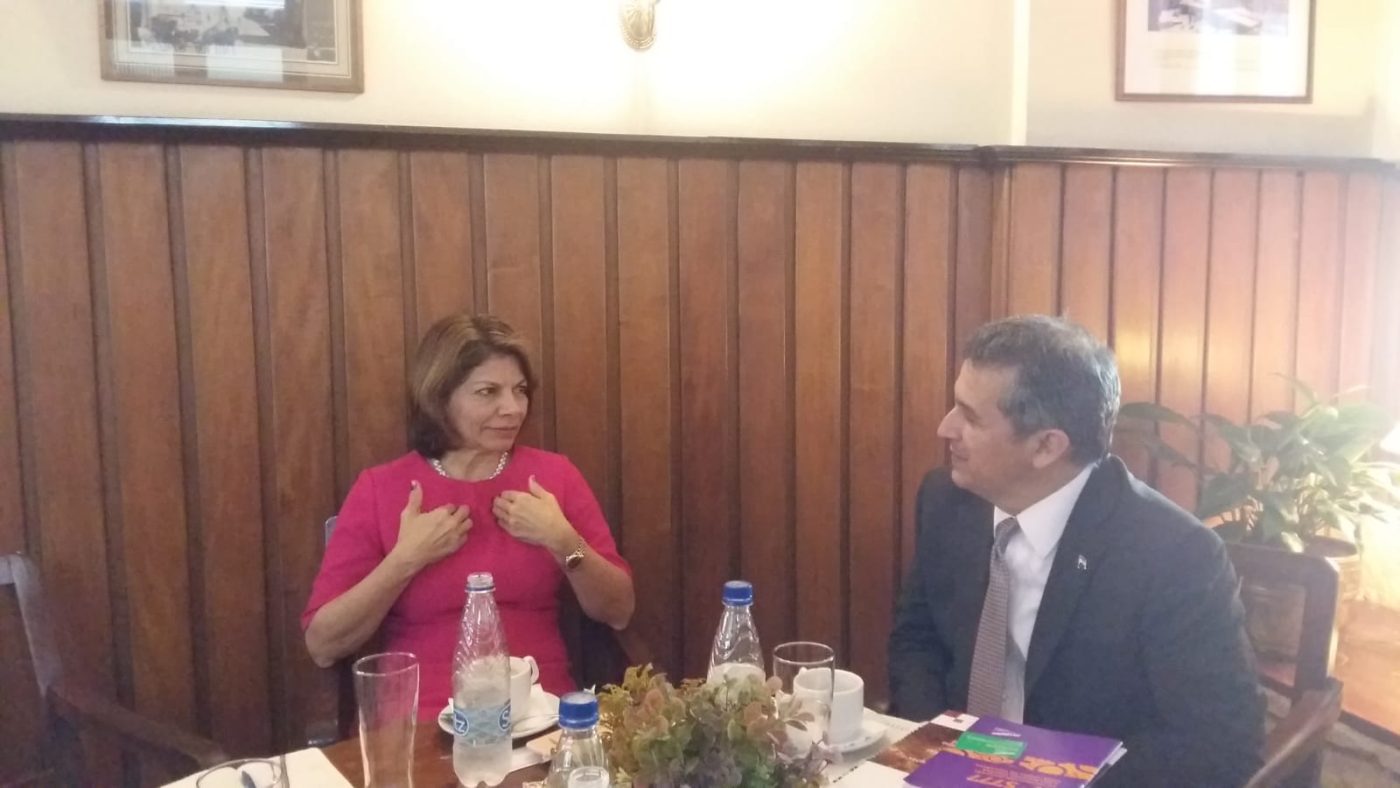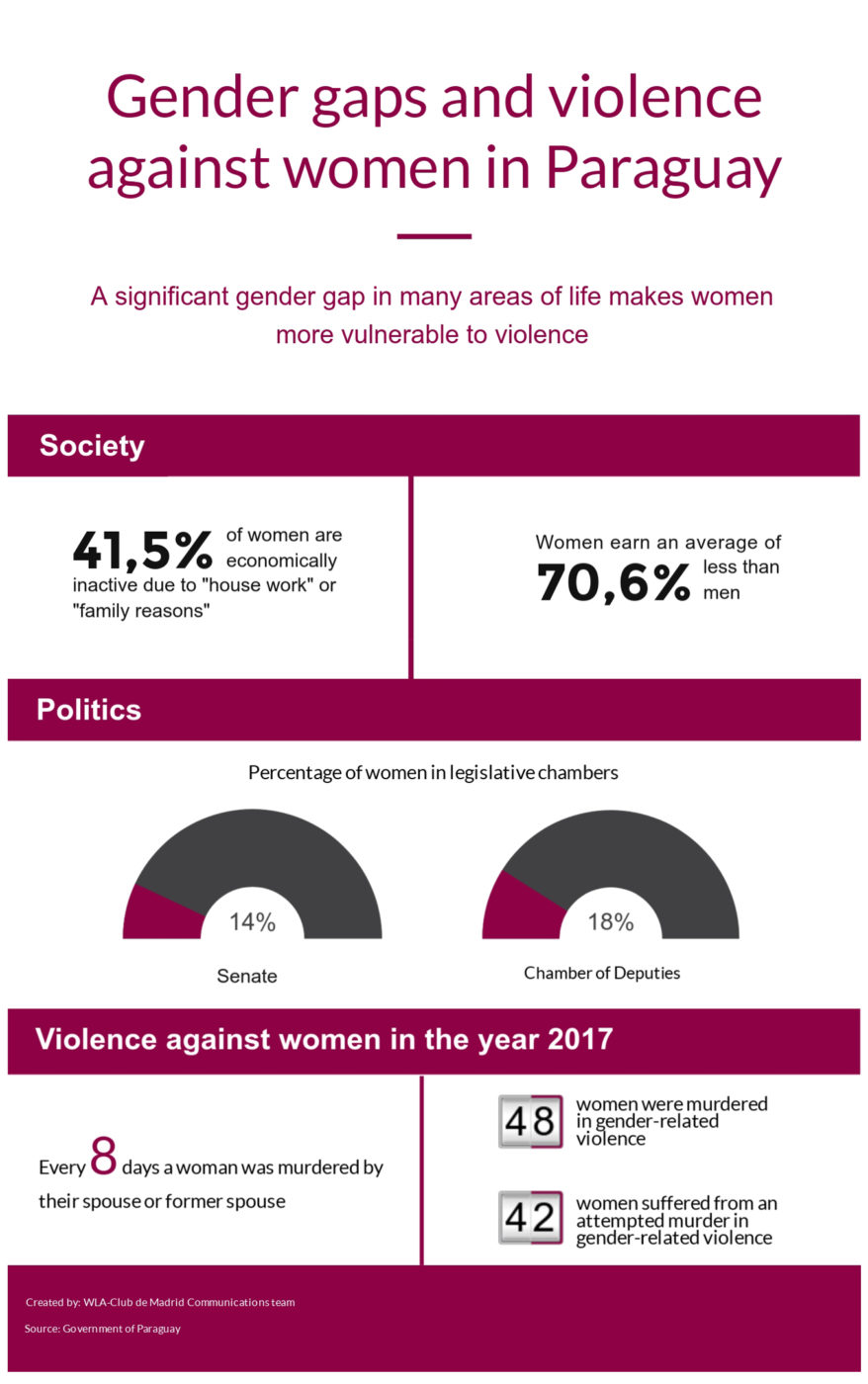Read this piece of news in Spanish here.
The Vice-President of Club de Madrid (CdM) and former President of Costa Rica (2010-2014), Laura Chinchilla, led a mission to Paraguay to advocate for the effective implementation of Law 5777/16, which aims at protecting women against gender violence.
In a mission that took place in Asunción between November 6th and 7th, Laura Chinchilla urged authorities to fully activate all mechanisms and measures contained in the law, assigning responsibilities to the many institutions involved in its implementation.
A particular emphasis was put on conforming a coordinating organ composed of all responsible institutions, including state actors and civil society representatives to ensure the implementation of the gender-based legislation
Paraguayan authorities understood the need to allocate resources for the implementation of Law 5777/16 and to partner with civil society in such efforts.
“We will make progress in strategies to promote the integral protection and empowerment of women”, said Minister at the Presidential Delivery Unit, Hugo Cáceres, shortly after holding a meeting with Vice-President of CdM, Laura Chinchilla.

Laura Chinchilla discussed law implementation with Minister at the Presidential Delivery Unit, Hugo Cáceres
An INSPRED+ mission
The mission is part of the EU-funded INSPIRED + project, which CdM implements together with the European Partnership for Democracy and The Netherlands Institute for Multiparty Democracy.
The Paraguayan partner of the INSPIRED + mission is Decidamos, a civil society organization seeking to shape an active, informed and pluralistic citizenry with a track record in campaigning against violence towards women.
INSPIRED+ promotes compliance with UN human rights and International Labour Organization conventions in specific countries with the incentive of the EU GSP+ framework, a discount or full exemption of trade tariffs.

Bringing all actors together in the fight against violence towards women
Paraguayan women suffer from significant gender gaps in different areas of life. Such a difference generates a greater dependence between women and men, which makes women more vulnerable to gender violence. Only in 2016 did Paraguay manage to pass Law 5777/16, making femicide a crime, setting up policies and strategies that prevent violence against women and attempting to protect victims of gender-related crimes.
Laura Chinchilla met with Paraguayan Minister for Women, Nilda Romero, in an exchange of views on how to enable the implementation of measures contained in the law to protect women against violence. Chinchilla highlighted the importance of accurate budgeting, of creating a coordinating organ that includes civil society and state institutions and of properly communicating and raising awareness over the importance of political initiatives on gender-related topics.
The former President of Costa Rica also met with the state prosecutor, Sandra Quiñónez, to discuss how the judicial power can overcome a lack of resources, a shortage in the training of prosecutors and a male-centric culture which hinders implementation.
A significant achievement in bringing all actors set to be part of the coordinating body was the National Conference on the Integral Protection of Women, Child and Adolescents against All Forms of Violence. It gathered all stakeholders committed to creating the coordinating body, notably Ministers and high-ranking officials, which raised the profile of a conference organized by civil society.
“When women come together and raise their voices, the world trembles”, said Laura Chinchilla at the conference, adding that “Politics is not an independent variable. We must make gender violence a reason of citizens’ outrage and thus make it a priority for politicians. Without a mobilised public opinion, we will not move forward”.
Laura Chinchilla has had significant experience in combating gender-based violence in Costa Rica, the country that she led between 2010 and 2014. In an interview with Paraguayan outlet, Última Hora, Chinchilla underscored the importance of Police in the role to protect women.
“There was a great indifference towards the problem. Domestic violence was considered a private matter, something which takes place behind closed doors, and there was much resistance to speak of and care for such cases. Our work started with trying to reverse this situation by creating awareness within police bodies and training them better”, said Laura Chinchilla.

